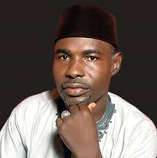The Northern Nigeria Disability Forum (NNDF), has reiterated the call for the Federal Government to intensify efforts in tackling poverty and unemployment to tame the insecurity bedeviling the country.
The North-West Zonal Coordinator, Alhaji Lawal Abdullahi, made the call in an interview with the News Agency of Nigeria (NAN) on Wednesday in Katsina.
He said that the call has become imperative in view of the rising security challenge in some parts of the country that led to the murder of the late District Head of Gatawa in Sokoto State, Alhaji Isa Bawa.
Abdullahi, who condemned the killing of the district head, urged the security operatives to fish out the perpetrators for prosecution to serve as a deterrent to others.
He said, “We want the government to investigate the matter and take necessary measures to curtail future occurrence.
“Insecurity is increasing as a result of poverty and unemployment.
“The federal government should hasten action to address these challenges because 90 per cent of our insecurity is caused by them.
“There is also hunger in the society. All these increase the rate of insecurity we are experiencing, particularly in the northern parts of the country.”
The coordinator explained that people living with disability were among those that are more vulnerable in the event of any crisis. (NAN)











